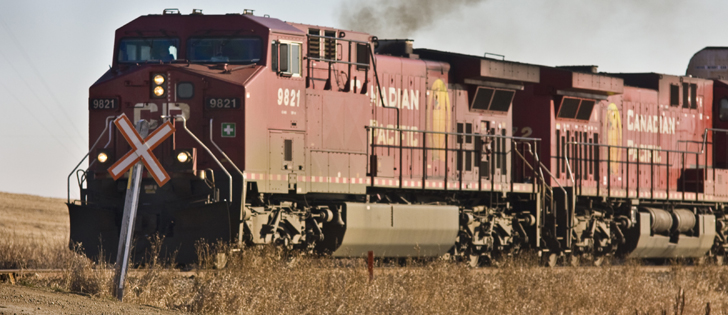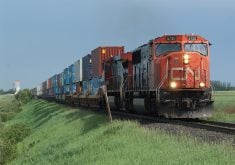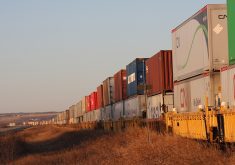Canadian Pacific Railway says it is cautiously optimistic that Bill C-49 will lead to future development of the Canadian transportation system.
In a May 18 news release, CP said it continues to review Bill C49, also known as the Transportation Modernization Act, but believes the proposed legislation will reduce uncertainty.
“Like any piece of legislation, there are pieces that resonate with certain groups and other pieces that do not,” said CP president and chief executive officer Keith Creel.
“We continue to review the details and will consult with Transport Canada officials and other key stakeholders.”
Read Also

Farming Smarter receives financial boost from Alberta government for potato research
Farming Smarter near Lethbridge got a boost to its research equipment, thanks to the Alberta government’s increase in funding for research associations.
Among other measures, Bill C-49 mandates the installation and proactive use of locomotive voice and video recorders, replaces temporary extended interswitching with long-haul interswitching, and more clearly defines what constitutes adequate service.
It also retains the Maximum Revenue Entitlement (MRE) with minor modifications.
“The proposed changes to the Maximum Revenue Entitlement should promote hopper car investments and that is good for the farmer, good for CP and for all Canadian exporters,” Creel said.
“The details on (long haul interswitching) need further review, however a move to commercial, market-based fundamentals versus the current regulated approach to extended interswitching is a step in the right direction.”
However, long haul interswitching measures that give U.S.-based railroads potential access to the Canadian rail network without reciprocity is not good public policy, Creel added.
“It could create an uneven playing field and disadvantage Canadian railways vis-a-vis those in the U.S., with a negative impact on jobs and investment,” he said.
CP said the proposed legislation appears to be balanced and focused on achieving a level of service that is reasonable given the specific facts and circumstances.
“We are committed to providing service that meets the needs of the supply chain, from the farm all the way to the port — that remains unchanged,” Creel said.
Legislative or regulatory changes that are implemented must be seen as improving the existing regulatory framework and enhancing the supply chain in a way that is sustainable, he said.
“While it is too early to tell if there will be unintended consequences from elements such as long-haul interswitching and service requirements, overall, from a net-net perspective, we believe the proposed legislation to be balanced,” Creel said.


















